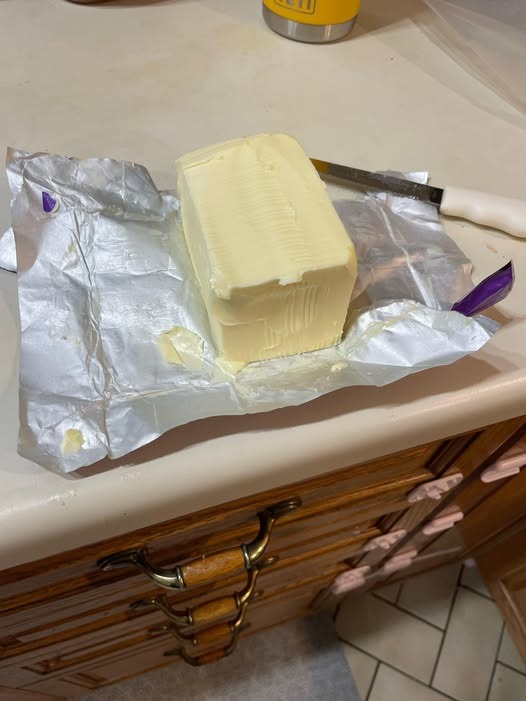The secret lies in its science-backed simplicity:
High fat, low moisture: Butter is about 80% fat and only 15–18% water. Bacteria need moisture to grow—so butter’s dry environment naturally resists spoilage.
Salt is a preservative: Salted butter (most store-bought sticks) has added salt, which further inhibits microbial growth.
Acidity helps too: Cultured butter or European-style butters have a slightly acidic pH, making them less hospitable to bad bugs.
In short:
Butter doesn’t “go bad” the way other dairy does.
Instead, over time, it may become rancid—a flavor issue, not usually a safety one.
How Long Can Butter Sit Out Safely?
It depends on your kitchen—and how you store it.
Below 70°F (21°C), covered
Up to
1 week
Above 70°F / hot/humid kitchen
No more than
2–3 days
Unsalted butter
Only
2–3 days max
(no salt = less protection)
Whipped butter
Not recommended (air + moisture = faster spoilage)
Pro tip: In summer or warm climates, play it safe and keep butter refrigerated.
How to Store Butter on the Counter Safely
Want soft, spreadable butter without risking quality or safety? Follow these smart tips:
SEE NEXT PAGE
ADVERTISEMENT

